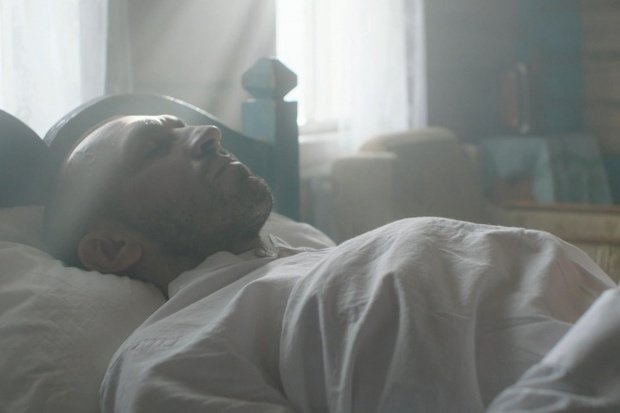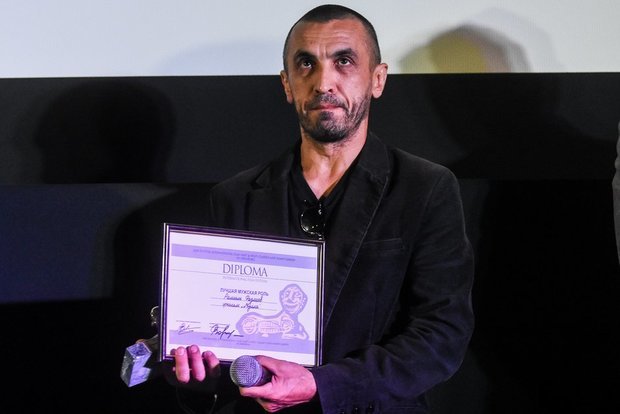Mullah film at Kazan Festival: we can!
A film that's rumoured to be one of the candidates to get Grand Prix was shown on the second day of the Kazan International Muslim Film Festival. It's Mullah film based on Tufan Minnulin's play. It competes in Full-Length Fictions Films. Realnoe Vremya tells the details.
A blast from the past
Mullah play was written by leading author of the Kamal Theatre Tufan Minnulin quite a while ago. The Kamal Theatre's head director Farid Bikchantayev made up its successful stage version several years ago, which, sadly, isn't staged any more.
Though it's not professional to compare a film and a play, we should judge by the genre's laws. We can't help but remember the final created by Bikchantayev. It's different than the one in the film, in fact. But they are similar. By Bikchantayev, after the leading character dies, a boy enters the mosque, a beam of light enlightens his figure, and the kid performs salah diligently pronouncing words. The metaphor is clear – it's impossible to kill the people's soul and faith.
In the film, the mullah doesn't die, he lies in bed in white clothes and hears a kid's voice coming from the mosque – the boy was performing salah. Both the film and the play's spectators have the same idea – faith and soul are immortal. In general, we can presuppose it's what he was writing the play about if we are familiar with Minnulin's oeuvre.

According to some backstage talks, Mullah is considered one of the leaders of the current film festival. The run caused a buzz. The film was simultaneously shown in three halls instead of one. But even three halls weren't enough for all people who wanted to see the film. The shooting crew or, more precisely, its small part moved from one site to another and didn't remain there for more than 10 minutes.
It was said a long time ago Mullah needed to be shot. But it didn't work until Tatarfilm director Milyausha Aytuganova became the film's producer. Marat Akhmetshin is the second producer, he is also the person who wrote music for the film. Mullah was shot with the help of the Tatarstan government. Though it can't be called expensive, its artistic quality wasn't affected.
White clothes
Ramil Fazliyev and Amir Galiaskarov shot the film. Fazliyev played the main character. The scene takes place in Kubyan, the director's village in Atna District, such a view of modern society with its evils and virtues. Here people can be kind, generous, magnanimous, here people can also cure their soul with alcohol, steal and keep others in terror. The film's main character Asfandiyar appears here as a mullah by a quirk of fate.
There is a kind of weakness of the script, as a result of which psychological reasons disappear. For instance, it's not clear why Asfandiyar suddenly agreed to become a religious cleric. Or why the former Afghan military and today's successful farmer turns from the mullah's enemy into his supporter. But the film was shot in such a stylistic uniformity, with such carefully considered tempo and rhythm, it's so imbued with the idea of the people's soul's immortality, which is cemented with faith, that you forgive these hiccups.

Ramil Fazliyev, who has a degree in directing and is working as the head director of the Atna Tatar Drama Theatre, is very stingy with emotions and as laconic as possible. But on the screen, his internal state reminds a volcano, which is deceptively covered with a layer of ash and hides the molten lava for some time. The character is surprisingly a slam dunk. However, Mullah has a lot of wonderful acting.
Not being a supporter of ''figureheads'' in Tatarstan films, I should note the appearance of Marat Basharov in the film isn't seen as a media stunt to attract the audience to the hall. The episode Basharov appears in, the logic of the development of that small character he played is quite logical and quite explainable.
''Faith without works is dead'' is a Christian postulate that's as precise as possible in the film about the mullah. Asfandiyar isn't a theologian, he's just a conscientious, whole man, and the sermon of his faith is kind, pious acts, his soul is tuned this way.
And the end where the main character lies in bed in white clothes after the attack where it isn't clear from the beginning whether he is alive or dead is very touching. The mullah opens his eyes a bit when he hears an immature voice of a kid who was performing salah from the neighbouring mosque. It means all he did was correct. The kid who substituted him at the mosque is live, real faith, strong thread connecting generations.
Tatarstan shot a film without lectures, an instruction that shows the face of Islam – patient and humane, which correspondent to the goal the Kazan International Muslim Film Festival was created for. Firstly, the film is full of poetic landscapes shot by Yury Danilov's camera who knows how to see beauty in an everyday landscape. Mullah has a story, fate, there is an attractive plot. There is Fazliyev's charisma. Let's wait and see what the jury will say.